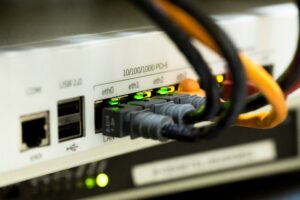VPNs, or virtual private networks, have become increasingly popular in recent years as a way to increase online security and privacy. They create a secure connection between your device and a VPN server, encrypting your data. It can be helpful for activities like streaming blocked content or browsing the internet anonymously. However, some drawbacks to using a VPN should be considered before deciding whether or not to use one.
In this article, we will take a closer look at both the benefits and drawbacks of using a VPN so that you can make an informed decision about whether or not it is right for you.
What is a VPN, and how does it work
It is first worth taking a step back and understanding precisely what a VPN is and how it works before we dive into the benefits and drawbacks. A VPN, or virtual private network, is software that runs on your device and creates a secure connection to a VPN server. This connection encrypts all the data sent between your device and the server, making it impossible for anyone to eavesdrop on your traffic and see what you are doing online.
The encrypted connection also makes it appear that your traffic is coming from the VPN server rather than your actual device, which can help bypass geo-restrictions or hide your IP address. Check out https://cyberwaters.com/ for more info.
The benefits of using a VPN
Many benefits come with using a VPN, which is why they have become so popular in recent years.
The most obvious benefit is increased security and privacy. By encrypting your traffic and hiding your actual IP address, a VPN makes it much more difficult for anyone to track your online activity or steal your data. It can be beneficial when using public Wi-Fi networks, which are often unsecured.
A VPN can also be used to bypass geo-restrictions and censorship. Due to the way that they work, VPNs can make it appear as if you are accessing the internet from a different location than you are. It can be used to bypass restrictions placed on particular websites or content that is only available in certain countries. It can also circumvent government censorship, as seen in China and other countries where the internet is heavily censored.
Finally, a VPN can also help to improve your internet speed and reliability. It is because it can bypass any throttling that your ISP may be doing on your traffic, as well as any congestion that might be present on your network.
The drawbacks of using a VPN
There are also some potential drawbacks to using a VPN that should be considered before deciding whether or not to use one.
One of the main drawbacks is that they can slow down your internet connection due to the extra encryption process that is taking place. It is usually only a minor slowdown, but it can be more significant on slower connections.
Another potential issue is that some VPNs keep logs of your online activity, which defeats the purpose of using a VPN for privacy in the first place. It is not an issue with all VPN providers, but it is something to be aware of before choosing one. Be sure to research a reputable VPN provider that does not keep logs of its users’ activity.
Finally, it is also worth noting that using a VPN does not make you completely anonymous online. While it makes it much harder for anyone to track your activity, your ISP will still be able to see that you are using a VPN, and some websites may also detect that you are using one.
How to choose the right VPN for you
If you have decided that you would like to use a VPN, there are a few things to consider before choosing one.
First, think about what you want to use a VPN for. If security and privacy are your main concerns, look for a VPN provider that offers strong encryption and does not keep logs of its users’ activity.
If you want to use a VPN for streaming content or bypass geo-restrictions, choose a provider with servers in the locations you need.
Finally, remember that not all VPNs are created equal, and some are much easier to use than others, so choose the right one for your technical expertise.
Tips for getting the most out of your VPN
Once you have chosen one of the best VPN, there are a few things you can do to get the most out of it.
First, be sure to use the most vital encryption protocol that your VPN provider offers, and this will ensure that your traffic is as secure as possible.
Second, connect to a server close to your location for the best possible speeds.
Finally, disable any features you are not using, such as DNS leak protection or kill switches, to improve your connection speed.
Using a VPN can be a great way to improve your online security and privacy and bypass geo-restrictions and censorship. However, it is crucial to choose the right one for you and to use it properly. Following the tips in this article can ensure you get the most out of your VPN.


